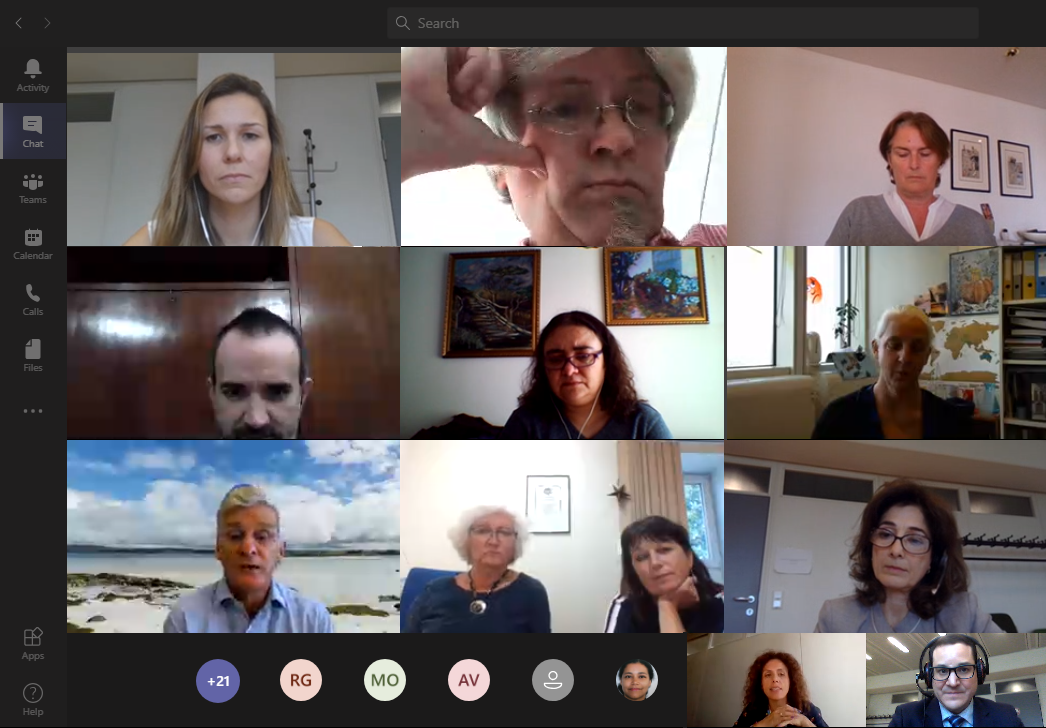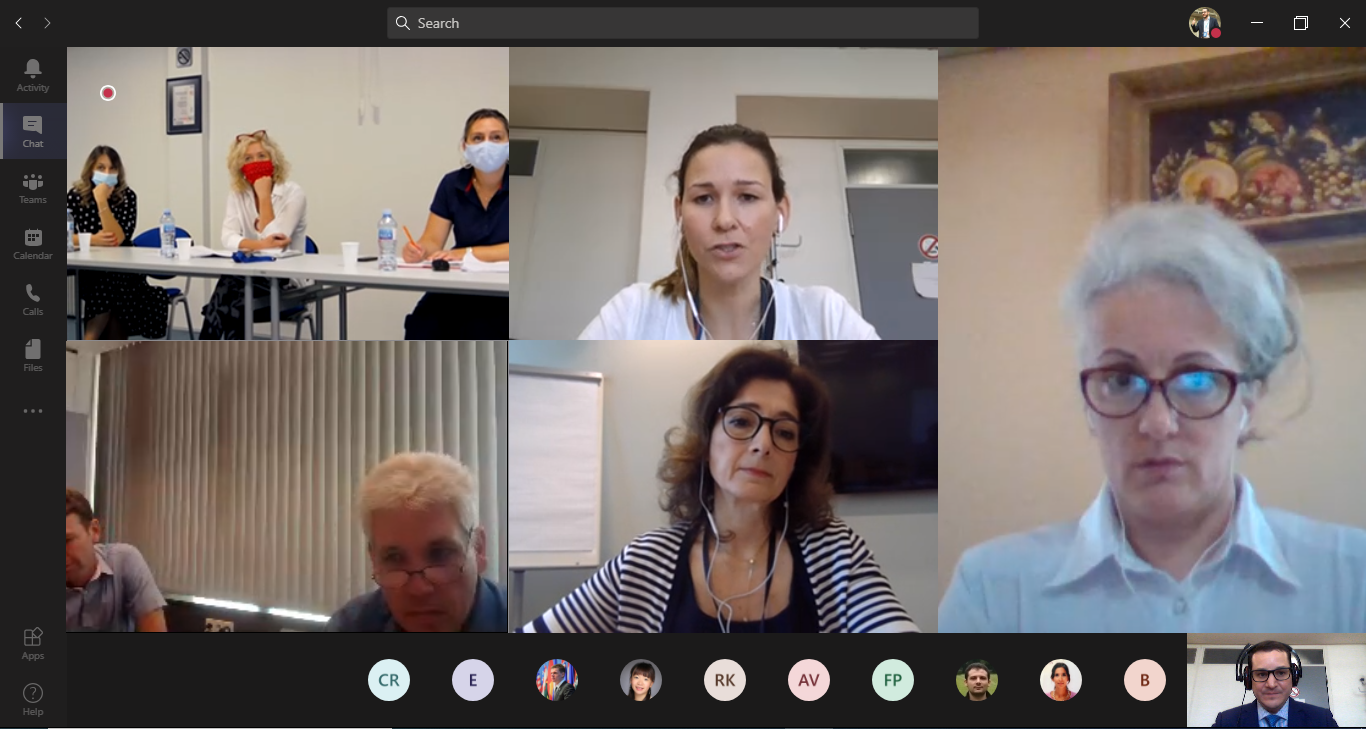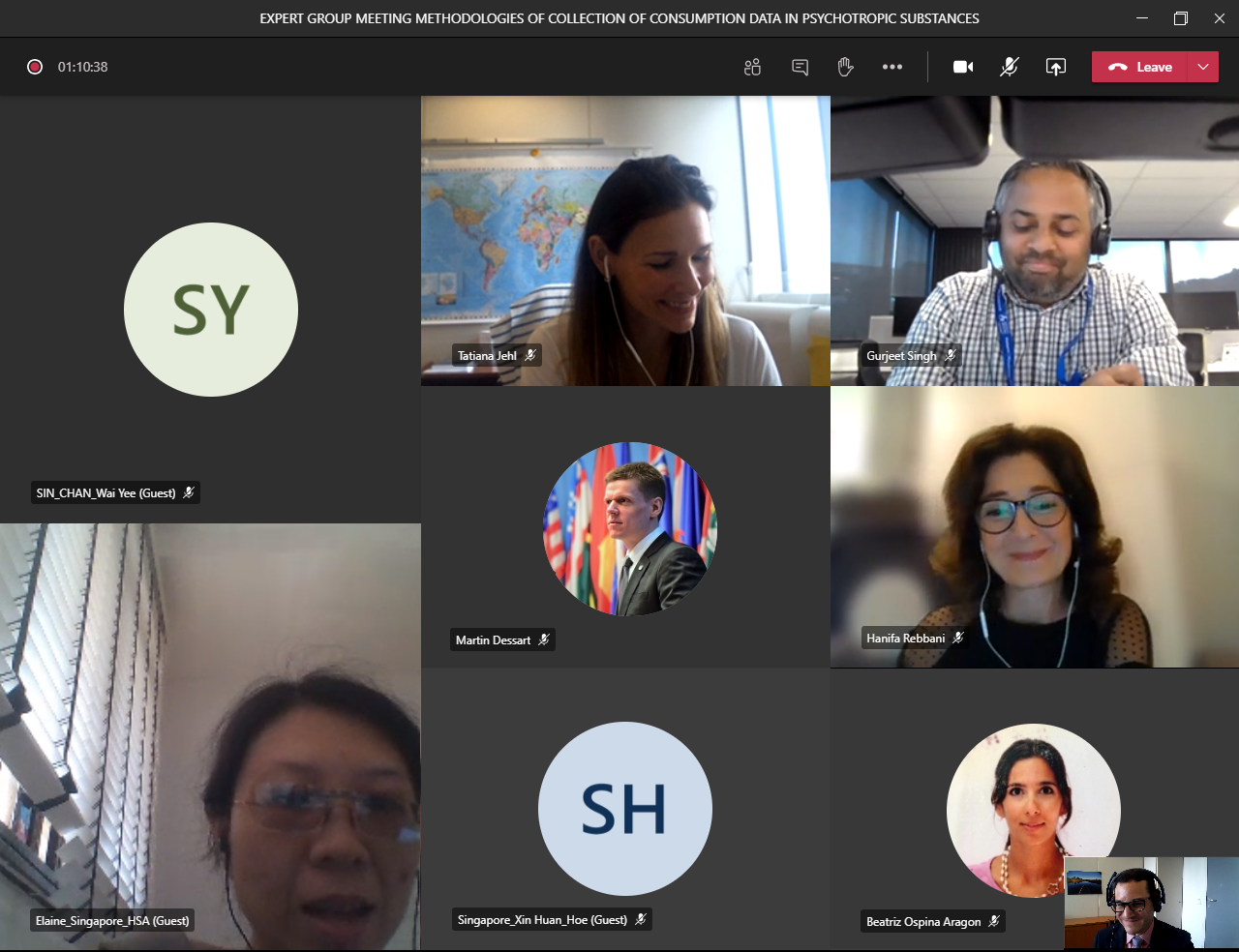International Narcotics Control Board convenes experts to review methodologies for collecting data on consumption of psychotropic substances, including medicines essential for the treatment of mental health and neurological conditions
VIENNA, 17 September - The International Narcotics Control Board (INCB) convened an expert group meeting on methodologies for collection of data on consumption of psychotropic substances. National officers from twenty 1 countries participated in the six online events held during the expert group meeting from 14 to 17 September 2020, in addition to experts from the United Nations Office on Drugs and Crime (UNODC), the World Health Organization (WHO), the Pan American Health Organization (PAHO) and the European Monitoring Centre for Drugs and Drug Addiction (EMCDDA).
INCB convened the expert group meeting in order to improve understanding of methodologies used for collecting data on consumption of psychotropic substances. The lack of reliable data on the actual consumption of psychotropic substances in many parts of the world remains a barrier to assessing and analysing trends in the availability of these substances and to providing targeted assistance to those countries with low levels of availability.

The Secretary ad interim of the Board, Mr. Stefano Berterame, opened the meeting highlighting that some of the psychotropic substances under international control remain essential in the treatment of mental health and neurological conditions and the important role that robust data collection systems play in gauging levels of consumption of psychotropic substances within a country or territory and evaluating whether patients have access to the substances or whether a particular population might be overusing or misusing such substances.
Ms. Elizabeth Mattfeld, UNODC, shared experiences from the field and highlighted information from the UNODC Technical Guidance: Increasing access and availability of controlled medicines. The representative of WHO, Dr. Claudia Nannei, featured some of the methodologies developed by WHO to assess the availability and affordability of medicines in health care facilities. Dr. Jane Mounteney, head of the Public Health Unit of EMCDDA, presented the challenges and opportunities of monitoring drug consumption in Europe. Finally, Dr. Sebastian Garcia Saiso, Director of the department of evidence and intelligence for action in health in PAHO, described the organisation's approach in the area of information systems for health and how it supports the adoption of new paradigms of data collection across the Americas.

Following the opening event, four working groups (WG) took place on 15 and 16 September. Experts from the participating competent national authorities shared their experiences in operating data collection systems for internationally controlled substances and recognized the technical challenges in implementing such systems, especially regarding consumption data for psychotropic substances. The participants also highlighted the relevance of improving the methodologies used in their countries as it would improve the quality of the data collected and ultimately support evidence-base decisions that will affect the availability and accessibility of internationally controlled substances for medical and scientific purposes.
A final event, held on 17 September, concluded the expert group meeting by summarizing the challenges, experiences and best practices identified during the initial presentations and the working groups. The information and experiences shared during the expert group meeting will serve as a reference for the Board to support Governments in improving the collection of consumption data of psychotropic substances under international control. This will in turn enable to Board to have a more accurate analysis of global availability and accessibility of psychotropic substances for medical and scientific purposes.

[1] Argentina, Belgium, Chile, Costa Rica, Finland, Germany, Jamaica, Latvia, Lithuania, Mexico, Montenegro, Netherlands, New Zealand, Peru, Singapore, Spain, Sweden, Switzerland, United States, Zimbabwe
* *** *
For further information, please contact:
INCB Secretariat
Telephone for media inquiries: (+43-1) 26060 4163
Email:
incb.secretariat[at]un.org